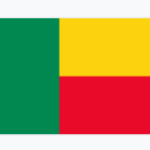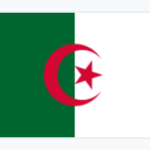Angola is a country located in southwestern Africa, with a long Atlantic coast and a rich variety of landscapes and cultures. It is the second-largest Portuguese-speaking country in the world, after Brazil, and has a population of about 35 million people. Angola has a history of colonialism, resistance, and civil war, but also of independence, resilience, and development. In this blog post, we will explore some interesting facts about Angola, its people, its economy, and its challenges.
History and politics
Angola was once part of the central and west African Kingdom of Kongo, founded in the 14th century. The kingdom incorporated much of present-day northern Angola as well as parts of the Democratic Republic of the Congo, Congo and southern Gabon. The kingdom had contact with Portuguese traders and missionaries since the late 15th century, and became a major source of slaves for the Atlantic trade. The kingdom gradually declined in the 17th and 18th centuries, due to internal conflicts and external pressures.
Portugal established its colonial rule over Angola in the 19th century, after a series of wars and treaties with local kingdoms and chiefdoms. Portugal exploited Angola’s natural resources, especially coffee, cotton, diamonds, and oil, and imposed a harsh system of forced labor and taxation on the Angolan people. Many Angolans resisted the colonial oppression, through armed rebellions, cultural movements, and nationalist organizations.
The struggle for independence from Portugal began in 1961, led by three main liberation movements: the Popular Movement for the Liberation of Angola (MPLA), the National Front for the Liberation of Angola (FNLA), and the National Union for the Total Independence of Angola (UNITA). The liberation war lasted until 1974, when Portugal underwent a democratic revolution that ended its colonial empire. Angola became an independent republic in 1975, with Agostinho Neto as its first president and leader of the MPLA.
However, independence did not bring peace to Angola. The liberation movements soon turned against each other, competing for power and resources in a civil war that lasted until 2002. The civil war was fueled by foreign intervention, especially from the United States, South Africa, Cuba, and the Soviet Union, who supported different factions according to their ideological and strategic interests. The civil war caused millions of deaths, displacements, injuries, and landmines, and devastated the country’s infrastructure and economy.
The civil war ended in 2002, after the death of UNITA’s leader Jonas Savimbi in a military ambush. A peace agreement was signed between the MPLA-led government and UNITA, paving the way for national reconciliation and reconstruction. Since then, Angola has enjoyed relative stability and security, although it still faces many political and social challenges. The MPLA has remained in power since independence, dominating the political scene and winning every election since 1992. The current president is João Lourenço, who succeeded José Eduardo dos Santos in 2017. Lourenço has initiated some reforms to fight corruption, diversify the economy, and improve human rights, but he also faces criticism for his authoritarian tendencies and his handling of the COVID-19 pandemic.
Economy and development
Angola is one of Africa’s largest and wealthiest countries in terms of natural resources. It has vast reserves of oil, gas, diamonds, gold, iron ore, copper, bauxite, phosphate, uranium, and other minerals. It is also endowed with fertile land, abundant water resources, diverse wildlife, and scenic beauty. Angola is the second-largest oil producer in sub-Saharan Africa (after Nigeria), and oil accounts for about 90% of its exports and 60% of its gross domestic product (GDP). Angola is also a member of OPEC (Organization of Petroleum Exporting Countries) since 2007.
Angola’s economy has grown rapidly since the end of the civil war,








